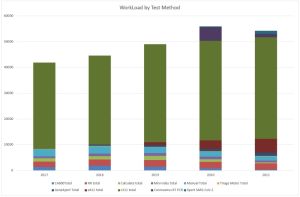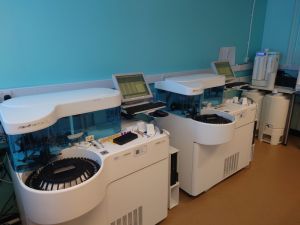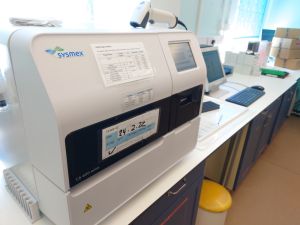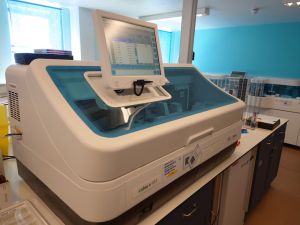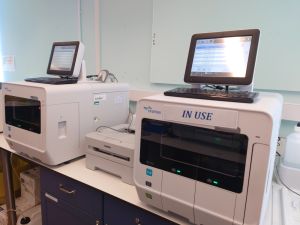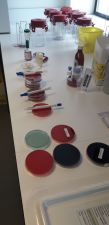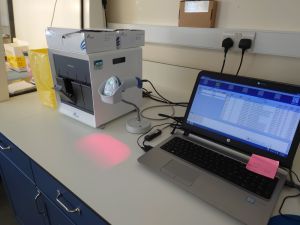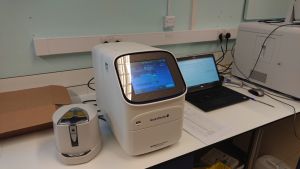Clinical Pathology
The department provides the only clinical pathology testing service in the Falklands. The department supports clinicians in the diagnosis and monitoring of Stanley and Camp residents as well as supporting the medical services of the Ministry of Defence at Mount Pleasent Complex.
This is a 24/7 service; the lab is fully staffed Monday to Friday from 08:00 to 16:30 and out of hours work is processed by the on-call Biomedical Scientist. The department receives on average 6 call outs per week. We are a busy department and are seeing a steady increase in workload year on year.
Blood Sciences
The blood sciences laboratory covers all activites of Haematology, Transfusion, Biochemistry and Viral Serology. The laboratory is well appointed with two Roche Cobas C311 analysers for the bulk of our cemistry work and a Roche Cobas e411 for special chimstry. Haematology is processed using Sysmex XN550 and CA600 analysers for full blood counts and a small coagulation repertoire.
Transfusion in the Falklands is supported by colleagues in UK Defense Pathology, essentially running as an emergency service only.
Serology for blood borne viruses is carried out on the Biomerieux mini-vidas.
Clinical Microbiology
The Clinical Microbiology lab uses conventional techniques for the isolation, identification and Antimicrobial Susceptibility Testing of pathogenic bacteria. There is no automation in this area due to the small volume of work seen. The department utilises EUCAST guidlelines and breakpoints.
Nucleic Acid Amplification Techniques
The department has access to both a closed cartridge polymerase chain reaction (PCR) platform, the Cepheid GeneXpert, and a Real Time (RT) Open Source Platform, manual extraction combined with ampliification on the QuantStudio 5. These pieces of equipment have allowed the department to not only meet the challenges of routine remote diagnostics, but also the extraordinary challenges posed by the emergence of SARS-CoV-2, commonly known as Covid19. We recognise that NAATs are an increasingly important set of diagnostic tools and as such intend to stay abreast of emerging diagnostics in this area.
Contacting the Service
Email: This email address is being protected from spambots. You need JavaScript enabled to view it.
Tel: +500 28069

